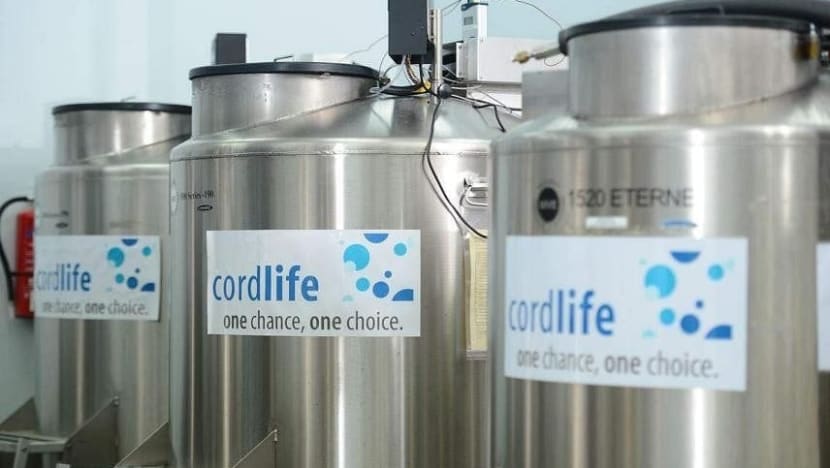Cordlife faces boardroom shakeup, calls to remove directors amid mishandling of cord blood units
Cordlife has come under scrutiny after it revealed last year that several storage tanks for cord blood units were exposed to temperatures above -150 degrees Celsius, the acceptable limit.


This audio is generated by an AI tool.
SINGAPORE: Cordlife is facing a boardroom shakeup after its shareholders requested the removal and appointment of several directors amid the company’s mishandling of cord blood units.
Cordlife halted trading on Mar 14 and announced on Mar 20 that it was extending the trading halt.
In a bourse filing on Thursday (Mar 21), Cordlife said it received a requisition notice on Mar 14 from Phillip Securities as a nominee for one shareholder, Nanjing Xinjiekou Department Store Co, requesting the board to convene an extraordinary general meeting (EGM).
It received a second requisition notice from TransGlobal Real Estate Group on Mar 18.
REQUISITION NOTICES
The first notice comprises seven resolutions – one resolution called for the removal of Mr Joseph Wong Wai Leung, the former chairman of the company, as a director of the company.
Mr Wong has stepped down as chairman of the board and chairman of the audit and risk committee due to "personal family and health reasons", the company announced on Feb 29.
Phillip Securities also called for the removal of acting chairman of the board Ho Choon Hou, independent director Yeo Hwee Tiong and the chairman of the ARC Titus Jim Cheong Tuck Yan.
The remaining three resolutions called for the appointment of three others as directors of the company – Dr Teo Tong Kooi, Dr Xu Tianhong and a Cai Yong.
In its requisition notice on Mar 18, TransGlobal called for the rejection of the proposals by Phillip Securities.
It also sought the removal of Mr Zhai Lingyun and Ms Shally Chen as directors of the company.
Cordlife said it is considering both notices and seeking legal advice, adding that it will make further announcements on the Singapore Exchange "in due course".
It added that it will continue to remain under a trading halt as of Thursday, pending the "preparation and finalisation of an announcement that will be released separately".
MISHANDLING OF CORD BLOOD UNITS
MOH said in January that the final test results to determine the viability of mishandled cord blood units were estimated to be ready by end-March.
This was due to the third-party laboratory capacity constraints and the need to conduct further tests using additional samples from different parts of the tank to “ensure thoroughness” of the findings.
The company has come under scrutiny after it revealed last year that several storage tanks were exposed to temperatures above -150 degrees Celsius, the acceptable limit.
This was made public on Nov 30, 2023 when MOH said Cordlife was being investigated.
About 2,200 cord blood units, which were stored in one of the seven affected tanks, were damaged. Pending investigations, another 17,000 clients could be affected.
In December, Cordlife said it would accept a six-month suspension given by the ministry.
Samples from the remaining six affected tanks and dry shipper – which is intended for transport and not long-term storage – were sent to a third-party lab to test the viability and potency of the units.
“Preliminary investigations show that two of the six affected tanks, which stored about 2,300 cord blood units, were unlikely to be adversely affected by the temperature excursions,” MOH said in January.
Cordlife is required to rectify a list of “potential non-compliances” by May 31. These include ineffective incident reporting frameworks, inadequate training and competence of staff, and the inappropriate storage of cord blood units, among others.
Its cellular therapy accreditation has been indefinitely suspended by the Foundation for the Accreditation of Cellular Therapy, a global non-profit corporation which conducts inspections and accreditation in cellular therapy.
















